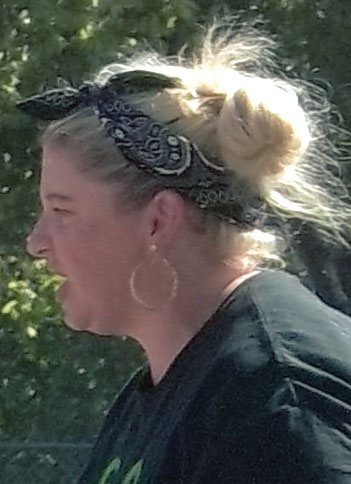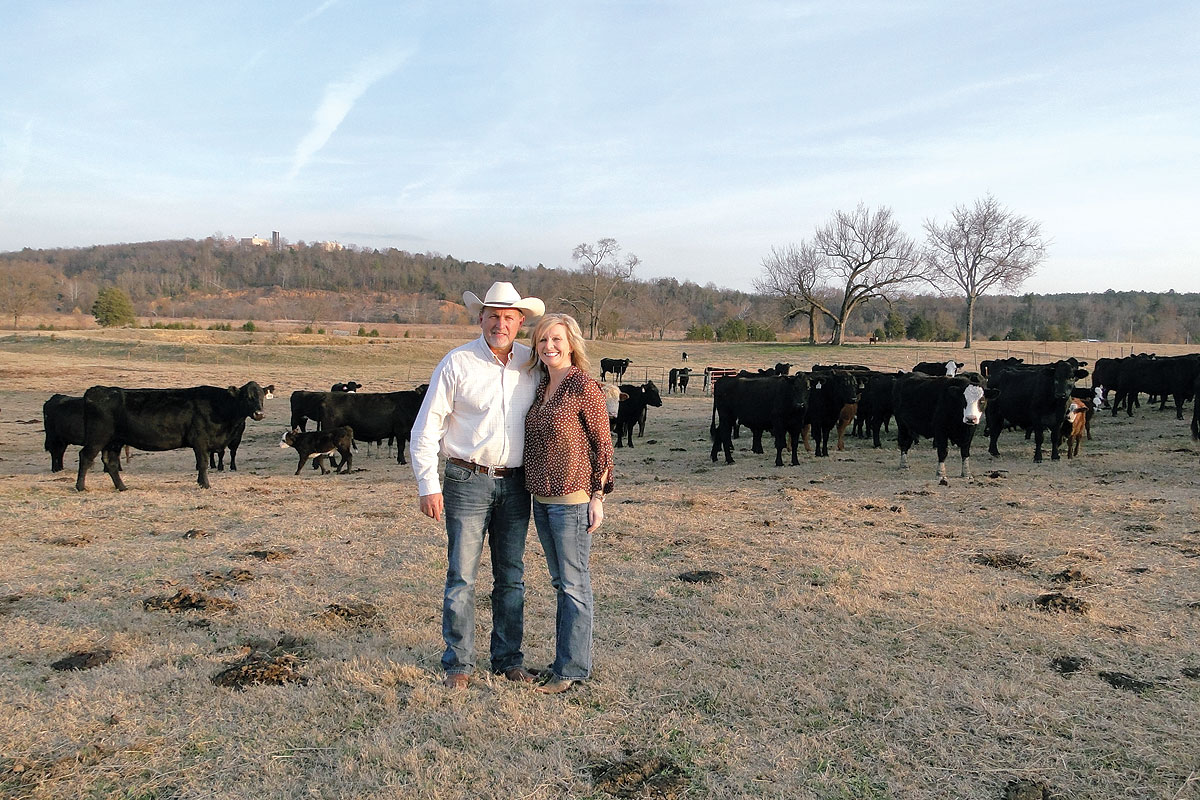
What can a miniature horse, cow, goat, a pot bellied pig and other farm animals do? Sometimes they can get people to do things they normally wouldn’t.
Kelly Blair Brown of Southern Kell, LLC., has been helping people with her Emotional Support Animals (ESA) even before she knew what the term meant.
Kelly’s dad, Jesse Blair, was the youngest child from a family of five. His older brother Billy was 14 years older and disabled, unable to walk or talk. Billy was Jesse’s best friend.
Kelly remembers her grandmother telling her stories of her father sneaking a horse, cow or donkey up to the porch so he could slide Billy off and take him for a ride.
“I tease people that Dad has been doing equine therapy before it was invented,” Kelly said.
Kelly was at home with a young family when her little girl’s second-grade teacher needed a pig for a kiss the pig contest. Kelly brought her pig to the class.
“I had the best time of my life,” Kelly recalled. “I started looking for ways to volunteer with my animals.
The rest, they say, is history.
“The first time I attended a hippotherapy session as a volunteer. There was a young man who traveled there twice a month for almost four hours who had spastic cerebral palsy. His mother and family members pulled him out of their van as stiff as a board, they placed him on the horse. Within about 20 minutes, they could bend him in the middle. After about 30 minutes of riding, he could move his arms, legs and they could work with him. The kid became a different person. He sat in the back seat of the van on the way home crying because he could actually sit up. He would be that way for about five days. I decided that was what I wanted to do.”
Kelly, who had two young sons at the time and was pregnant with her daughter, volunteered several more times convinced hippotherapy was something she was meant to do. She talked to one of the professionals and was given the advice to keep her dream but, do something she could do at home with her kids while they were still young.
Kelly and her father decided to form JK Horses.
“We ran barnyard birthday parties, a petting zoo, pony rides, chicken chases, barnyard games and anything I could figure out to do with barnyard animals,” she said. “We would have activities and threw many parties in the barn. I had a 93-year-old grandmother who loved seeing her grandkids and great-grandkids chasing chickens and doing things she used to do when she was growing up. We ended up throwing her a party, too. Even when gas got up to $5 a gallon, it didn’t stop my parties.”
There was a love in the business for Jesse too.
“My dad wanted to see kids experience horseback riding,” Kelly said. “He didn’t really understand but, he could see a change in people when they were around animals. Whenever there was a disabled adult family member at an event, my dad would always find a way to get them on a horse. Families would always be amazed they would get to participate.”
Kelly is convinced they were successful in a large part because of her father.
“We were the only family-farm related venue posted on the Oklahoma Agritourism map at the time.”
When Kelly and her first husband divorced, Kelly and her father decided to close the business. “It was a family-oriented business. It just wasn’t the same without my family running it.”
Now, Kelly is the office manager at the Cherokee County Health Services Council in Tahlequah, Okla.
Kelly still volunteers with her animals and has a registered handler’s license and animals licensed by the National Board of Emotional Support Animals (ESA).
“An ESA is a companion animal that provides therapeutic benefit such as elevating or mitigating some symptoms of disability for an individual with a mental or psychiatric disability. Usually, they are someone who is volunteering with their animals or someone who has a prescription from their doctor saying not to separate a dog from the patient because they have anxiety,” Kelly said. “I provide my services to schools, nursing homes, community events, churches and hopefully very soon hospitals.
“Cherokee County Health Services’ platform is improving the overall health opportunity; physical fitness, nutrition, tobacco, mental health and awareness.”
Pam Iron is the executive director of the Cherokee County Health Services, and said Kelly is a good fit into the organization’s mission.
“We see ESAs as a creative way to get people excited and on board with our programs,” Pam said. “What Kelly does fits well as a part of our mental wellness and mental health overall piece.”
Pam is also trying to get Kelly’s ESAs used as a resource for area mental health groups.
“We have been stockpiling things I have been doing with my therapy animals as examples when applying for grants to show what I can do with grant money,” Kelly said. “Being a hippotherapist is still my dream.”







